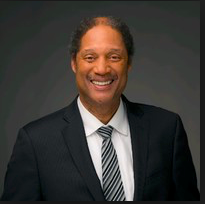Former State Pharmacy Board Presidents Warn That Drug Importation Won’t Keep Costs Down

Image source: Twitter

Image Source: LinkedIn
This editorial by Holly Strom and Kenneth Schell was published in U.S. News and World Report on May 28, 2019. Both Strom and Schell are former Presidents at the California Board of Pharmacy.
Commentary: Importing Prescription Drugs Won’t Solve Cost Issues
Efforts to import prescription drugs from Canada received a big boost in May when President Donald Trump reiterated his support for the proposal. Trump reportedly directed Health and Human Services Secretary Alex Azar to work with Florida, which is one of 16 states pursuing importation legislation, to get the necessary federal approvals as quickly as possible. According to Florida Rep. Matt Gaetz, the president is "chomping at the bit for this solution to lower drug prices."
As former presidents of the California State Pharmacy Board, we sympathize with patients suffering from the significant increase in prescription drug list prices in recent years. We've seen personally and professionally the medical and financial consequences of rising out-of-pocket drug costs throughout our careers.
Widescale drug importation from Canada, however, is not a practical solution to this problem. It is a distraction from efforts to address the real prescription drug cost drivers. In the words of Secretary Azar, it's "a gimmick." Trump and legislators should redirect their efforts to proposals that could actually make a difference short term and long term in lowering costs.
Perhaps conflating its geographic size, importation proponents seem to overlook Canada's small population, which is less than California's. There's no way that our neighbors to the north could supply the U.S. market -- or even a handful of states -- with all of its prescription drug needs. According to the Canadian Pharmacists Journal, Canada's drug supply would run out in 224 days if merely 10% of U.S. prescriptions were filled with Canadian drugs. The former Health Minister of Canada said, "Canada cannot be the drugstore for the United States."
Yet the bigger problem with drug importation is not logistics but safety. While bona fide Canadian drugs are surely safe, there's just no way to ensure that drugs marketed as Canadian are actually Canadian. It's easy for a supplier in, say, Turkey to set up a "Canadian" drug website and route its product through a Canadian address. Federal investigations have repeatedly found drugs that supposedly came from Canada really originated in other nations.
In 2005, the Food and Drug Administration found that nearly half of the imported drugs intercepted from four developing countries were marketed as "Canadian." They found that the vast majority -- some 85% -- of "Canadian" drugs actually came from 27 other countries. Last year, Canadadrugs.com was fined $34 million by U.S. prosecutors for selling two cancer drugs with no active pharmaceutical ingredients.
The World Health Organization estimates that 1 in 10 drugs from developing countries are counterfeit. In 2018, the FDA found 3,600 websites selling illicit and counterfeit drugs.
According to Katherine Eban, author of "Bottle of Lies," FDA investigators found fraud and deceptive practices in the vast majority of drug plants inspected in India and China, including bird and insect infestations and potential urine contamination.
Counterfeit concerns have only grown with the prevalence of fentanyl, just 500 micrograms of which is enough to cause an overdose. Law enforcement uncovered 130,000 counterfeit pills laced with fentanyl in Alberta in 2016.
A compromised drug supply threatens the only thing more important to patients than cost: safety. This has led to a bipartisan consensus among recent FDA chiefs of both Republican and Democratic Administrations opposing Canadian drug imports. There's "no effective way to ensure drugs coming from Canada really are coming from Canada rather than being routed from say a counterfeit factory in China," says HHS chief Alex Azar.
So if not by importation, how can prescription drug prices be brought down? Drug distribution and supply channels must be reformed to allow for more competition to bring down prices as well as eliminate pricing distortions that thrive behind a veil of secrecy -- what former FDA chief Scott Gottlieb has called "Kabuki" theater.
Yet to address these real drivers of prescription drug costs, policymakers must avoid using up their political capital on this distracting and dangerous importation delusion.
Holly Strom and Kenneth Schell are past presidents of the California State Pharmacy Board.